Anxiety is the theme for this year’s World Mental Health Week, which ends today. As soon as I saw that word, anxiety, I knew that I wanted to write a blog article about anxiety and kayaking. Kayaking on white water is always going to involve some feeling of nervousness. You are under pressure to execute your skills with the knowledge that if you do not, there is the potential for unpleasant consequences. Being anxious is a very understandable response to paddling on white water.
However it is also a sport which can lead to high levels of anxiety at times where it is not always understandable. I am talking about anxiety that seems to come out of the blue and yet has the ability to completely paralyse you. For me, this is the anxiety that appears in situations that in theory you should be completely comfortable in. Local rivers you have run dozens of times before, play spots which you know are safe to practice in, rapids which you could run backwards with your eyes closed and still be fine. It’s the anxiety that no one wants to talk about because it just doesn’t make sense. In this article, I am going to talk about it. I will mainly be talking from my own experiences.
What is anxiety and when does it become a problem?
Heart racing, stomach turning, hands shaking, feeling light headed, feeling sick, looking for an escape route. Those are some of the common symptoms of anxiety and most of us will be familiar with these feelings. You may have experienced them before an sitting an exam, delivering a speech or before the start of a race. It is completely normal to feel this way as it is your body’s way of preparing for ‘fight or flight’ when put in a dangerous situation. Oxygenated blood is diverted away from the things which are deemed unimportant and instead prioritised to the places where it is needed most. Sitting above a rapid and feeling this way is pretty normal. It is how your body is helping you to ‘survive’ the upcoming danger.
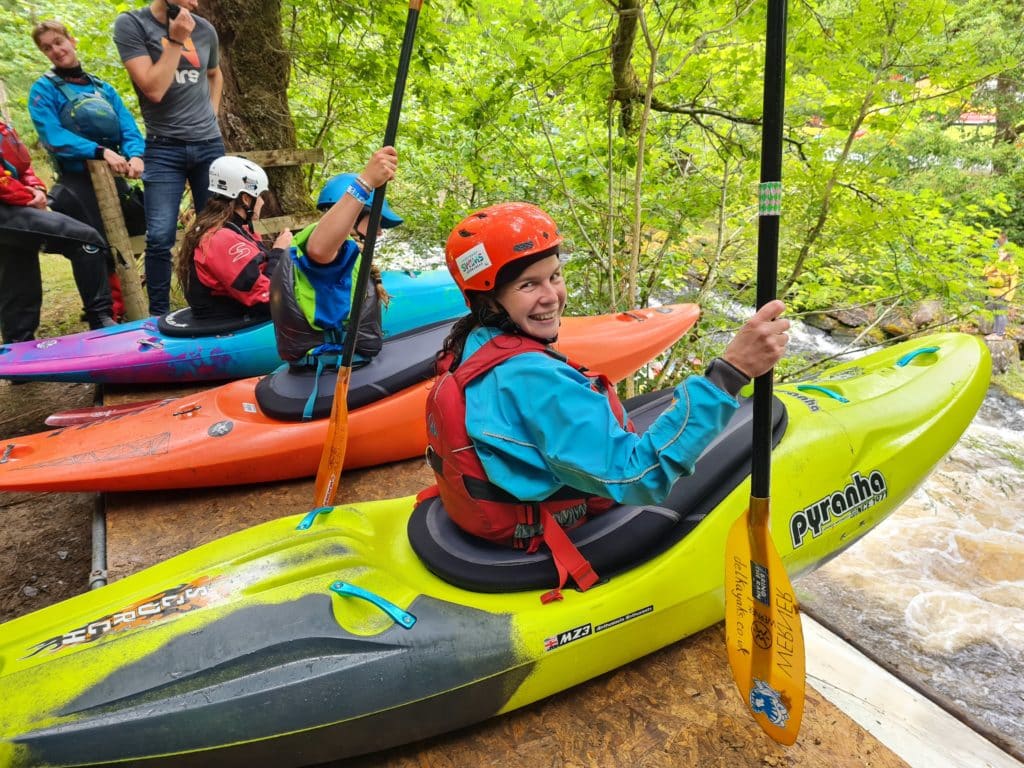
When these feelings become a permeant part of paddling and maybe even lead you to change your decision making – this is when it has potentially become a problem. If you are feeling this way long before you have got on the river or it is stopping you from going kayaking altogether, then it may be worth taking a step back and working out what exactly it is that is making you feel this way.
Anxiety – my personal experience
This is what I have done. Over the last few years my skillset in kayaking has continued to improve. I am a significantly more skilful and more experienced kayaker than I was 5 years ago. Yet in that time, the last two years especially, I have found myself struggling more and more with my head game. I have much higher levels of anxiety around kayaking than I ever used to and this is the single biggest thing holding me back in my kayaking right now.
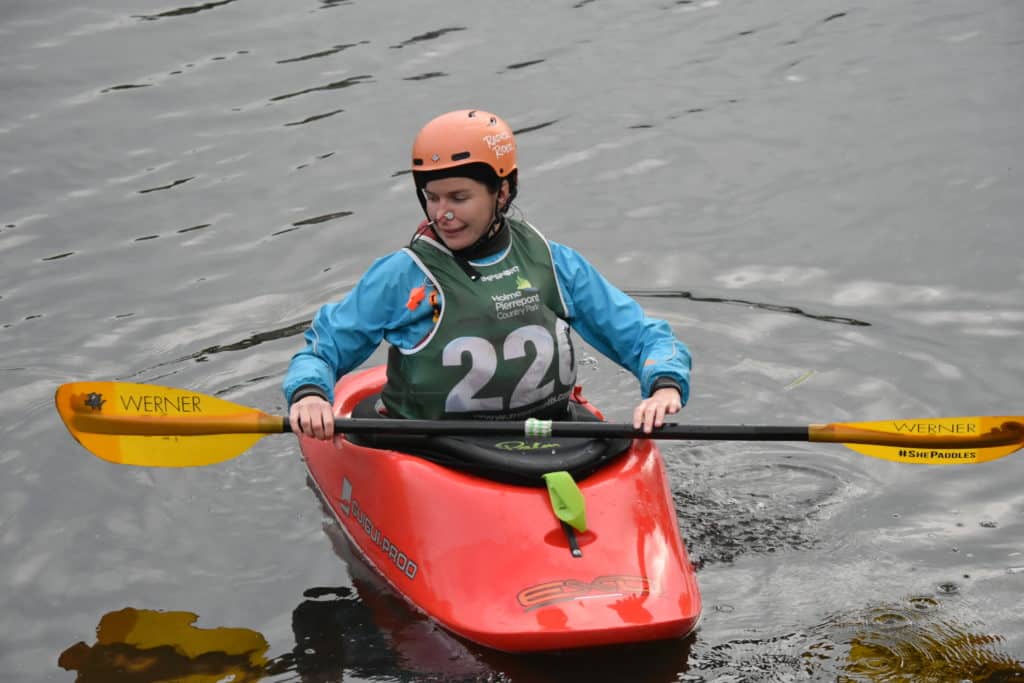
If I had to break it down about where this anxiety is coming from, three reoccurring reasons spring to mind.
1.Performance anxiety. I, like many other people, really dislike being watched when I paddle. I will often paddle worse with an audience than when I am on my own because it makes me so nervous. A while back I wrote an article about perfectionism and this links very strongly with this. Someone who has perfectionist tendencies will often hold fears of people catching them failing and then judging them for it.
But failing and being judged for failing is not what’s happening in reality. In reality, the only way you can learn is through failure. In reality most people are far too preoccupied with themselves to even notice you. In reality, even if people do watch you and you do mess up, nobody cares. I know this and yet it does not stop the anxiety around fear of failure being any less overwhelming.
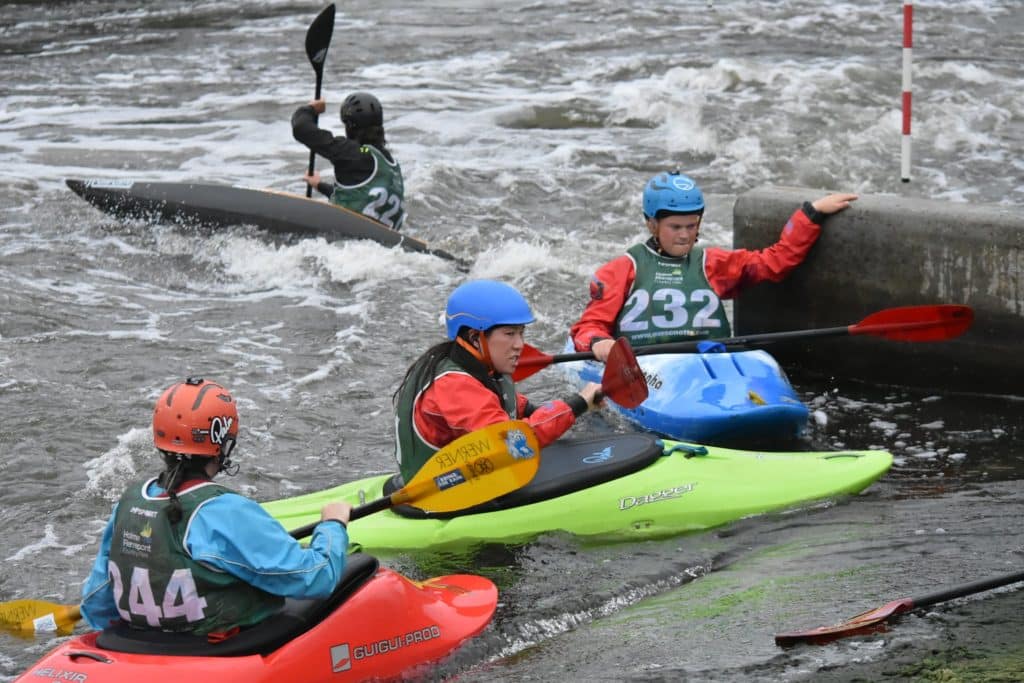
2.Imposter syndrome. This one ties very closely with performance anxiety and is one that affects me a lot. Imposter syndrome is when you have a distorted perception of yourself and believe that you are a fraud in some way and it is only a matter of time before everyone else finds out. In kayaking, this can lead to feeling very anxious about getting on the water and can stop you from pushing yourself. The better I have got at kayaking, the worse my imposter syndrome has got.
I have a reputation for being loud and enthusiastic, both on the water and on social media. Consequently over the last few years I have started to have people come up to me on the river or at kayaking events who I do not know but who know me. For the most part I really do not mind this – I love talking to people! Especially about kayaking! However I often worry that people will assume I am better than I am and then be disappointed with me. I know it is ridiculous and probably not true but I worry nonetheless.
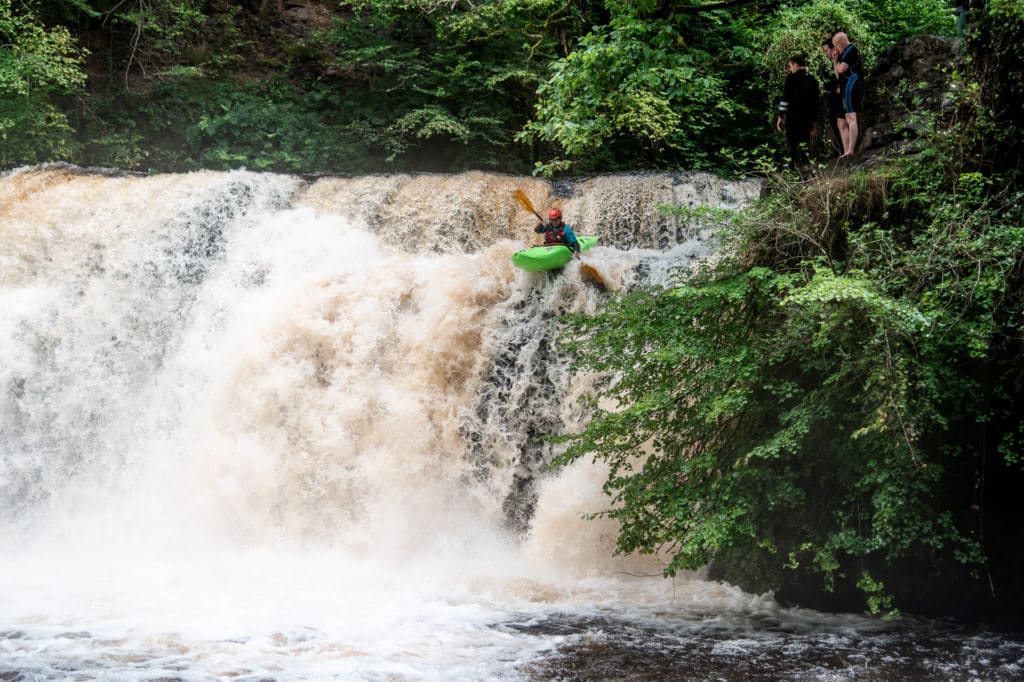
Last year I bumped (quite literally – I knocked him off a wave) into a guy at the Tryweryn who then introduced himself. We had a lovely chat and he said he followed my Instagram page. He followed this by saying that following the professional paddlers were great but sometimes it got a bit boring watching their videos because they were just so good. He said that he liked my account because it was nice to see videos and photos which weren’t ‘perfect paddling’. It made me realise that no one really cared or expected me to me the ‘best paddler’. I was anxious about being ‘found out’ and yet there was nothing for anyone to find out.
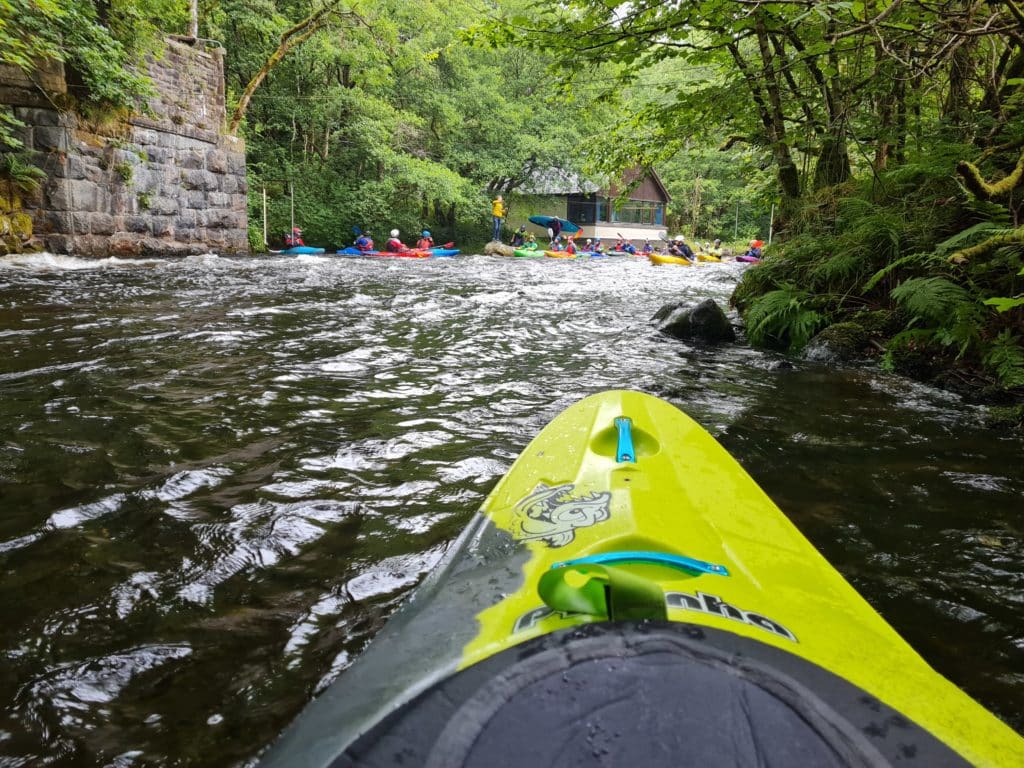
3.Overthinking EVERYTHING. This last one I think sums up the main cause of anxiety for me. Sometimes you give a thought some thought even when you shouldn’t. What was one anxious thought then becomes a whole stream of them! This can then build something up something small into a much bigger problem. I won’t go into specifics here as I think it can apply to anything. The point I am trying to make is that building something up in your head is such an unhelpful and infuriating habit. It also leads to high levels of anxiety which can be then really hard to back down from. Unfortunately for me, overthinking is a skill that I excel in!
Solutions?
I haven’t got all the answers but there are some things I actively try to do to improve my anxiety. I thought I would share them with you here.
1. Work with a professional. A coach or a therapist can make a world of difference to your head game. Talk to someone about how you are feeling. Try to identify exactly what it is that is causing you anxiety and work with that professional on this area. Paddling is as much a mental sport as it is a physical one and a good coach knows this. Putting your trust into a professional’s hands can allow you to explore your *wibble wobble zone* without feeling like you are losing control.
*I am sure there is a more professional term for this. I am referring to the process of pushing you outside of your comfort zone but still within your capabilities so that you can improve in the areas you have identified to work on.
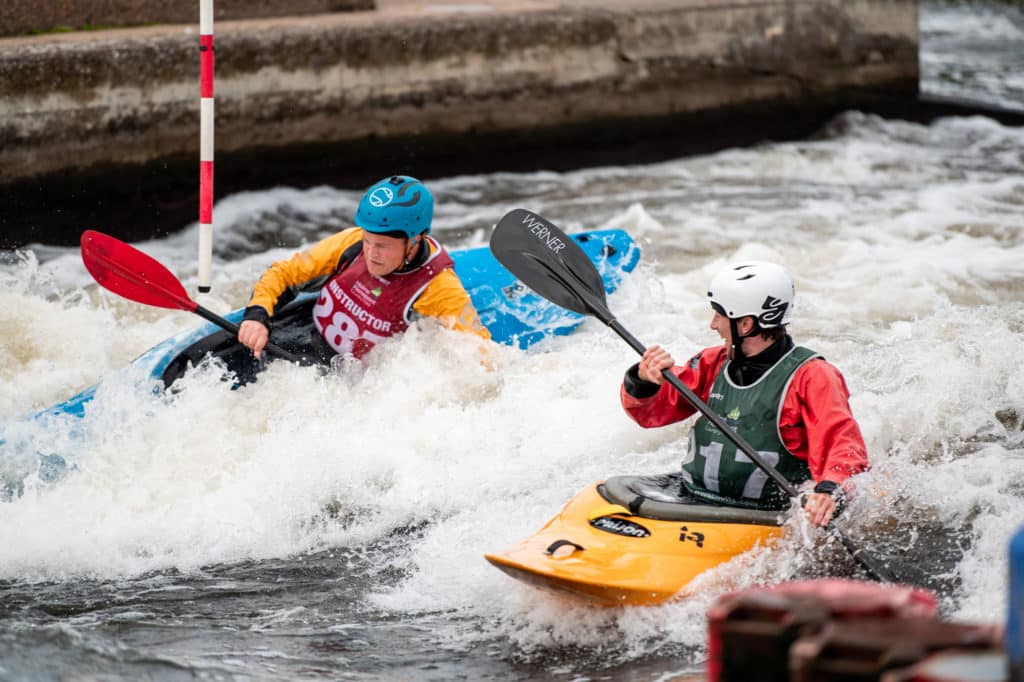
2.Paddle with friends and paddle for fun! The best decision I could have made for myself is to make the rule that I would paddle for fun. I was at a point where I was putting so much pressure on myself to perform on the water that I wasn’t even enjoying myself. Making your time on the water enjoyable is the best thing you can do! I am now in place where I really enjoy paddling again because I am doing it for fun. I paddle a variety of craft with as many people as I can and have found my love for white water again. My anxiety has reduced somewhat and I am gaining back my confidence in a kayak. You can read more about this one here.
3.Just do it. Sometimes the best decision is just to stop thinking and decide. Last year I was debating about whether to book a EuroOpen ticket. EuroOpen is a fun freestyle focused paddling event held at HPP at the end of Summer. I wasn’t feeling confident in a playboat at HPP and didn’t know if I should go. In the end I was too busy to (over)think about it and so just booked a ticket anyway. I turned up on the weekend and there was no time to overthink. So I geared up, got on and just paddled.
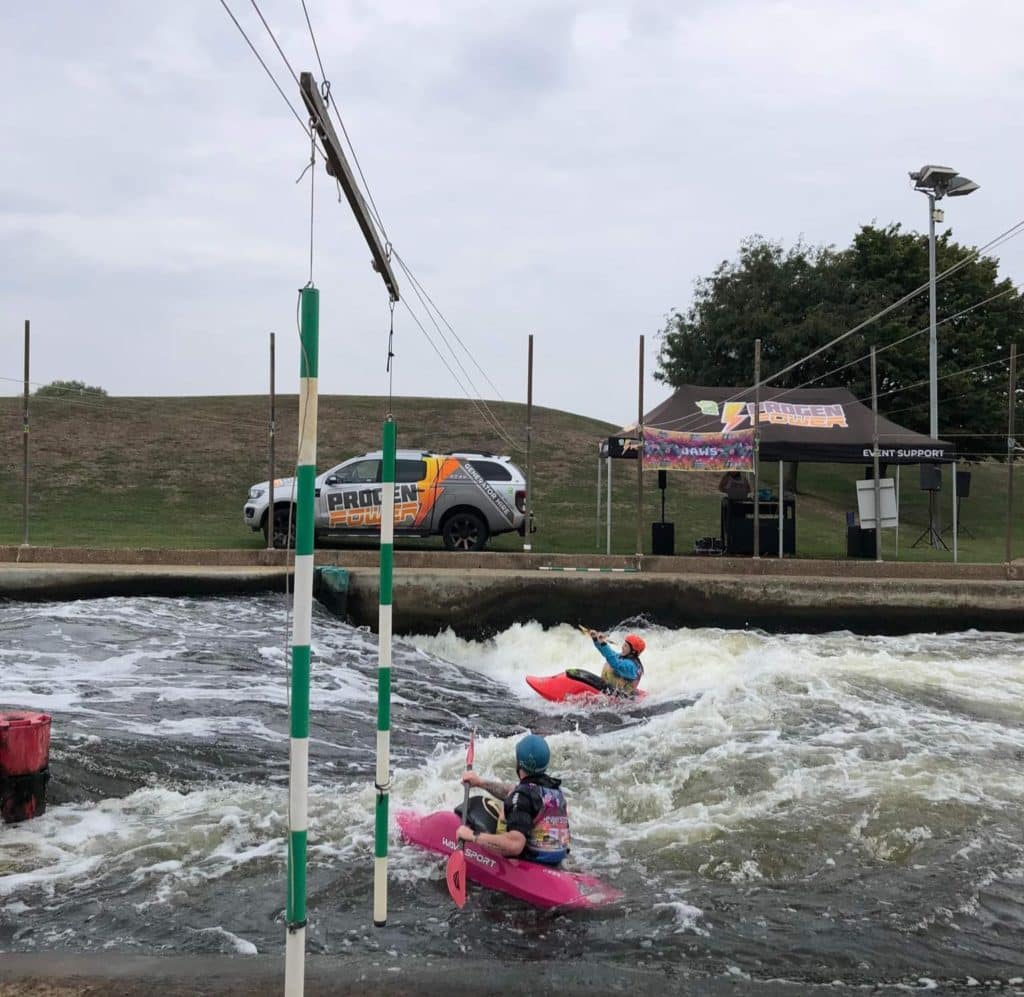
I then had one of the best weekends of paddling ever. I was absolutely fine in my playboat and must have rolled it a dozen times during my freestyle heat. Someone even said to me after there were so impressed with my rolls. I competed in every event and had an absolute blast. I ended the weekend with so many wonderful memories and even won two medals! (One for freestyle kayaking and one for white water SUP). The video above is from the inflatable race. It really struck me that if I had allowed myself more time to overthink I might have talked myself out of going altogether and would have missed out on such an incredible weekend.
I am not saying don’t think things through which actually need thinking – a rapid which pushed your skillset to their limit for example. What I am saying is stop overthinking the things that even you know are overthinking!
Final words
Anxiety is a really big barrier to so many people and everyone who is affected will feel it differently. This article has been very much about my own experiences with anxiety. I suspect those experiences will resonate with some but will also be very different from what others may face. If anxiety is something you struggle with, on or off the water, don’t be afraid to ask for help or to talk about it. I used to think everyone felt this way and it was only through talking that I realised that most people don’t. That then helped me to try and find ways to help myself to deal with the anxiety better. Please get in touch if you want to talk. And as always, happy paddling!
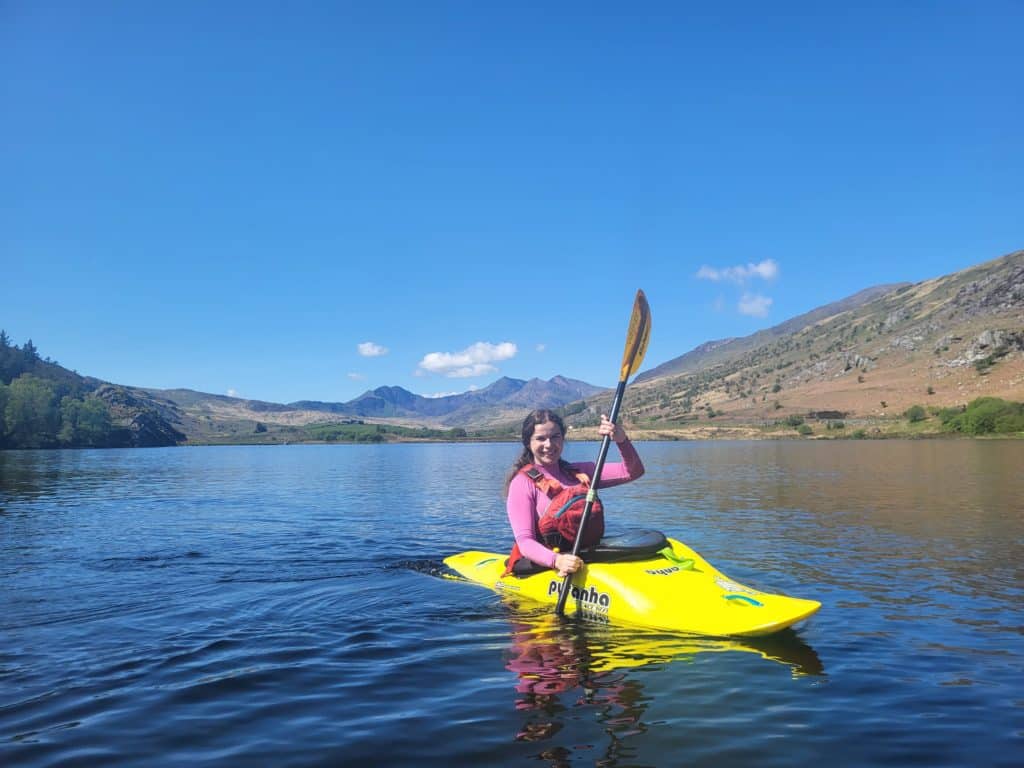
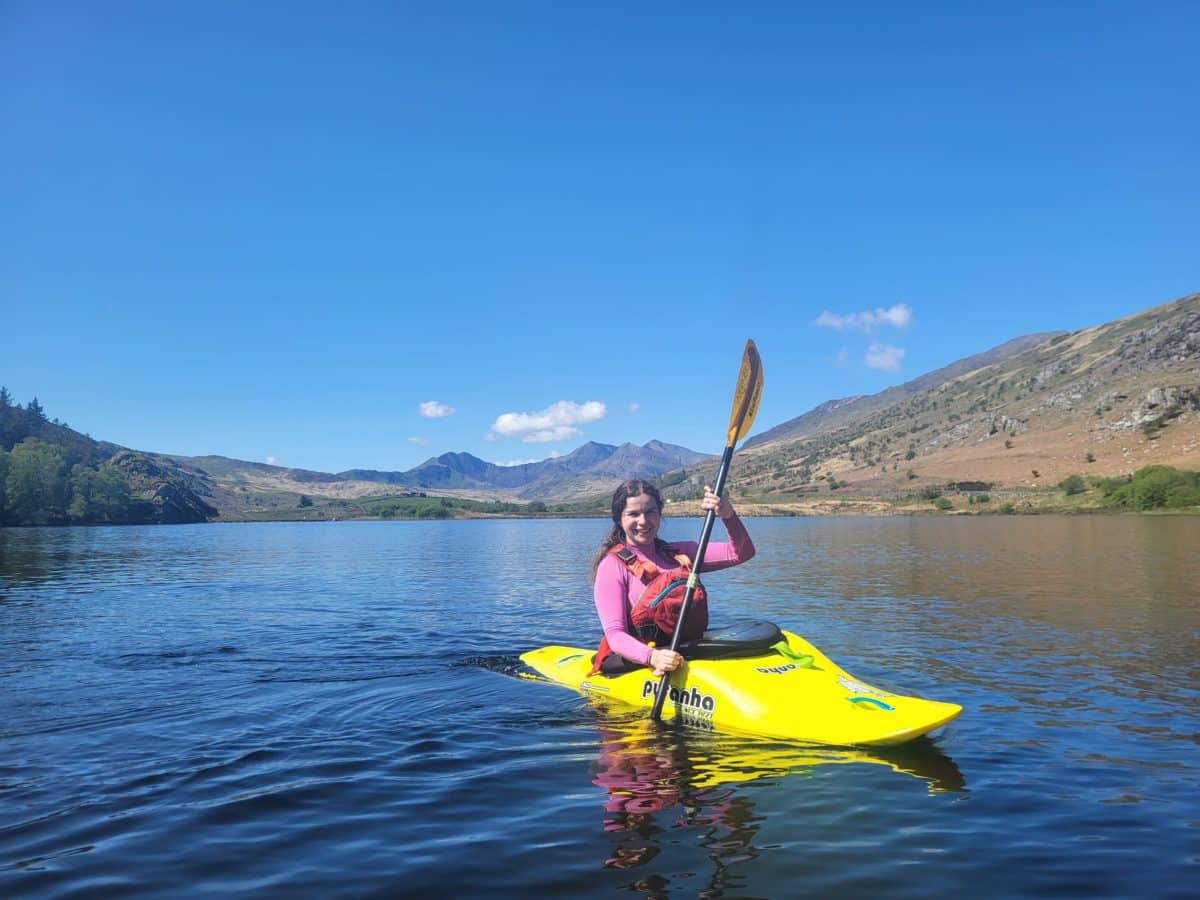
8 replies on “Dealing with anxiety & kayaking”
so great that you shared, it happens during the learning time until you used it, for me. Just paddle and paddle with friends don’t think too much, just paddle and laugh.
That’s the aim!
It’s great to see someone talking about anxiety and how it can affect different aspects of our lives, including sports like kayaking. It’s important to recognize when anxiety becomes a problem and to seek help if needed. The solutions provided here are helpful and can be applied to other areas of life as well. Thank you for sharing your personal experiences and insights on this topic.
You are welcome – I am glad it was useful 🙂
Every single word of this I can relate to directly and first hand. Last week I had an absolute mare at HPP and nearly lost my boat (some slalomers got it into an eddy and then for some unexplained reason let it back out again, leaving it to float all the way down into the main part of the Trent!) I hadn’t been there since before the pandemic, four years ago, and I quickly discovered I’d lost the knack for shimmying out of the hole. I was stuck there for so long I pulled a calf muscle on repeated attempts to get out. I ended up having to go over on purpose and pull the deck. My head games are pretty awful right now as they are, so this hasn’t helped matters. I’m going back there tomorrow for another go, but my anxiety levels are through the roof right now. It doesn’t help that I’m going through very mixed up and down emotions with kayaking in general. I won’t be giving up boating, but I ended up writing a pretty depressing post over on my own blog about it as a sort of therapy.
Hi Simon,
Sounds like you did the hardest thing which is going for that first trip back. With HPP, if you are feeling nervous, I find it helps to start with a couple of ‘down river’ laps. Just get some eddies / punch some holes before going for any surfs. Paddle for fun and paddle with friends – I hope you find your joy again 🙂
[…] Dealing with anxiety & kayaking […]
[…] Dealing with anxiety & kayaking […]